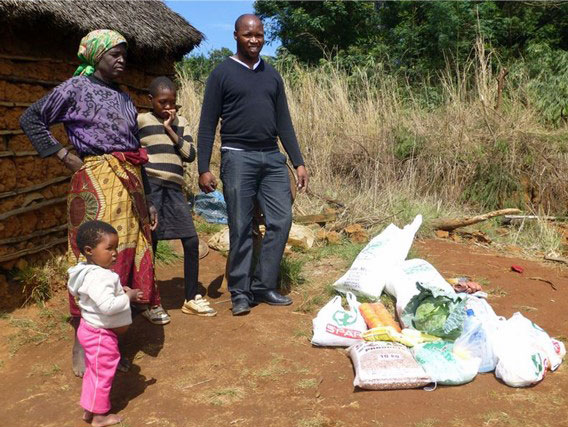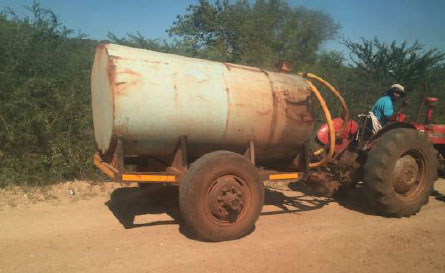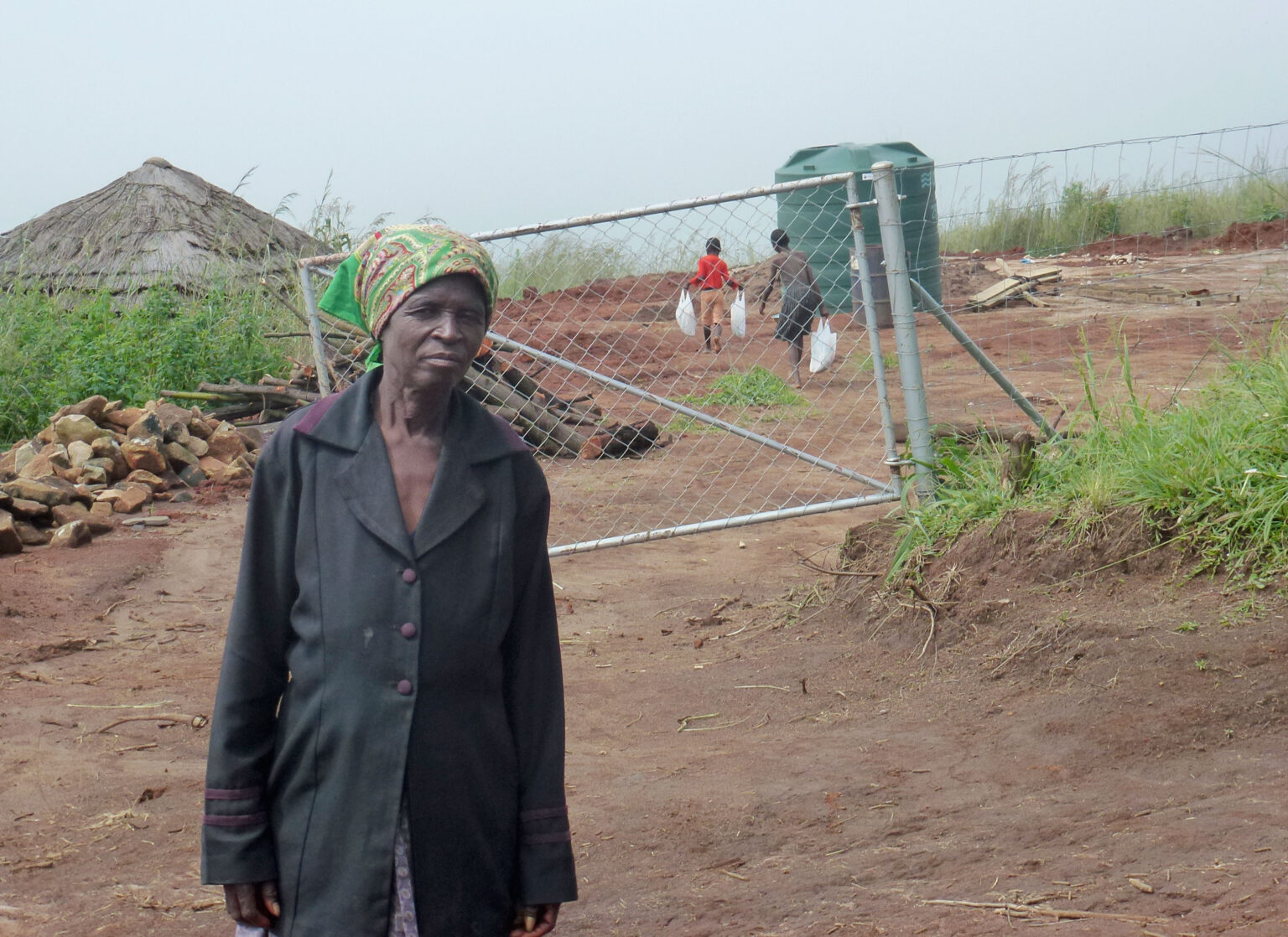Katastrofläge är utlyst och regeringen meddelar att pengar E 305 miljoner (cirka 170 miljoner kronor) avsatts för att köpa mat och mildra hungern för de värst drabbade landsmännen. Vid en utfrågning i ett parlamentsutskott den 17 maj 2016 meddelade premiärminister Dlamini att pengarna frysts av finansministern och inte kan betalas ut. Sannolikt fanns det inga pengar avsatta från början utan var ett försök att få internationellt bistånd till Swaziland.
Folket svälter, barnen får inte mat i skolan längre och dödsfall på grund av svält har redan inrapporterats. Uppemot 300 000 människor (cirka 25 procent av befolkningen) är utsatta för svår undernäring.

Konsekvenser av torkan
Mr Mbongiseni Shabangu, vår projektledare i Enterprise Development Trust, berättar om konsekvenserna av det svåra läget i hans land:
”Water scarcity is the major consequence of the drougt, with water rationed to only three days a week in some urban areas as boreholes, dams, and rivers run dry. This has massive implications on all sectors of society, affecting overall sanitation conditions. Schools are facing a water and sanitation crisis, affecting almost 80 per cent of all education institutions. In all, an estimated 189,000 learners and 8,157 teachers and support staff have been affected. The water crisis also has impacted healthcare, as medical facilities cannot function properly without a guaranteed supply of clean water. While the water situation is already critical, we have yet to enter the dry season, which lasts from April to October. (Major dams’ water levels have not significantly improved with the recently experienced rains.)
The country has one of the highest prevelance of HIV-infected adults (26 per cent of people aged 15 to 49 years). Food insecurity affects adherence to anti-retroviral (ARV) therapy as patients cannot take treatment on an empty stomach. Lack of food also affects access to health services as many people prioritize the little financial resources they have to buy food rather than pay for travel to a health facility. Most of the children supported by the Swazi Children Foundation have been severely affected by this situation.
The ongoing emergency has the potential to worsen protection concerns such as gender-based violence, sexual and economic abuse and difficulty in accessing intergrated sexual and reproductive health services. Groups most affected and vulnerable to exploitation, violence and abuse include women and youth, especially girls, orphans and vulnerable children, and adolescents. Adolescent girls are particularly at risk of urinary tract infections due to poor menstrual hygiene associated with poor sanitary conditions.
”Water scarcity is the major consequence of the drougt, with water rationed to only three days a week in some urban areas as boreholes, dams, and rivers run dry. This has massive implications on all sectors of society, affecting overall sanitation conditions. Schools are facing a water and sanitation crisis, affecting almost 80 per cent of all education institutions. In all, an estimated 189,000 learners and 8,157 teachers and support staff have been affected. The water crisis also has impacted healthcare, as medical facilities cannot function properly without a guaranteed supply of clean water. While the water situation is already critical, we have yet to enter the dry season, which lasts from April to October. (Major dams’ water levels have not significantly improved with the recently experienced rains.)
The country has one of the highest prevelance of HIV-infected adults (26 per cent of people aged 15 to 49 years). Food insecurity affects adherence to anti-retroviral (ARV) therapy as patients cannot take treatment on an empty stomach. Lack of food also affects access to health services as many people prioritize the little financial resources they have to buy food rather than pay for travel to a health facility. Most of the children supported by the Swazi Children Foundation have been severely affected by this situation.
The ongoing emergency has the potential to worsen protection concerns such as gender-based violence, sexual and economic abuse and difficulty in accessing intergrated sexual and reproductive health services. Groups most affected and vulnerable to exploitation, violence and abuse include women and youth, especially girls, orphans and vulnerable children, and adolescents. Adolescent girls are particularly at risk of urinary tract infections due to poor menstrual hygiene associated with poor sanitary conditions.

8 juni 2016


